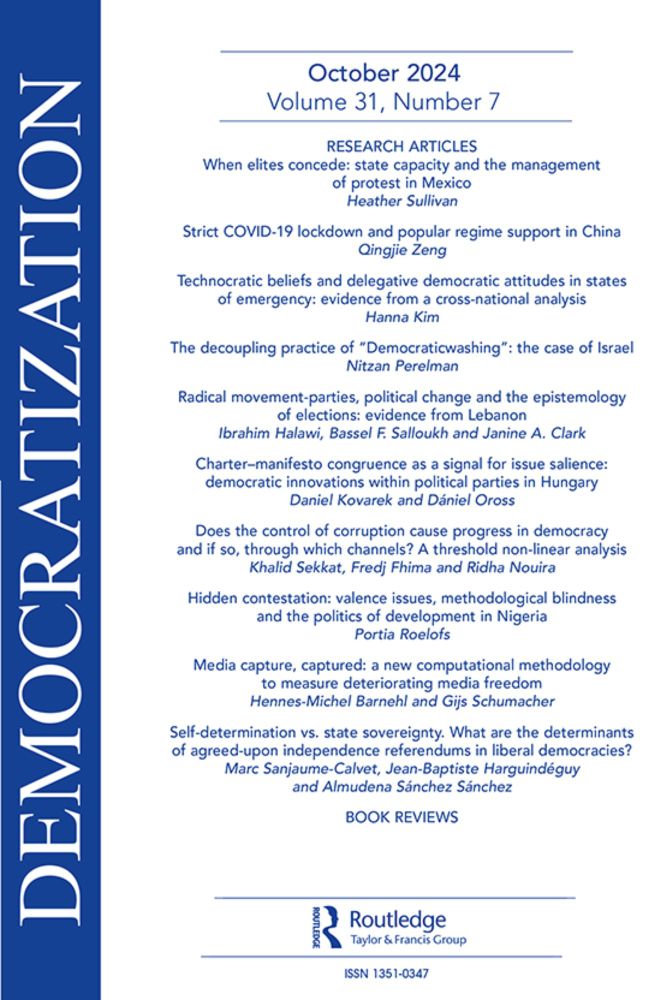Annekatrin Deglow
@annedeglow.bsky.social
1.4K followers
310 following
10 posts
Associate Senior Lecturer/Assistant Professor, Department of Peace and Conflict Research (Uppsala University).
Organized violence | Policing and crime | Elections | Democracy.
Posts
Media
Videos
Starter Packs
Annekatrin Deglow
@annedeglow.bsky.social
· Nov 22
Annekatrin Deglow
@annedeglow.bsky.social
· Nov 21
Annekatrin Deglow
@annedeglow.bsky.social
· Nov 21
Annekatrin Deglow
@annedeglow.bsky.social
· Nov 21
Annekatrin Deglow
@annedeglow.bsky.social
· Nov 21
Annekatrin Deglow
@annedeglow.bsky.social
· Nov 21
Annekatrin Deglow
@annedeglow.bsky.social
· Nov 21
Annekatrin Deglow
@annedeglow.bsky.social
· Nov 21
Annekatrin Deglow
@annedeglow.bsky.social
· Nov 21
Annekatrin Deglow
@annedeglow.bsky.social
· Nov 21

Militarized elections and citizens’ support for democratic rights: evidence from India
Across the world, many citizens go to the polls amidst armed threats from both state and non-state actors. How do militarized elections affect citizens’ willingness to accept restrictions on democr...
doi.org
